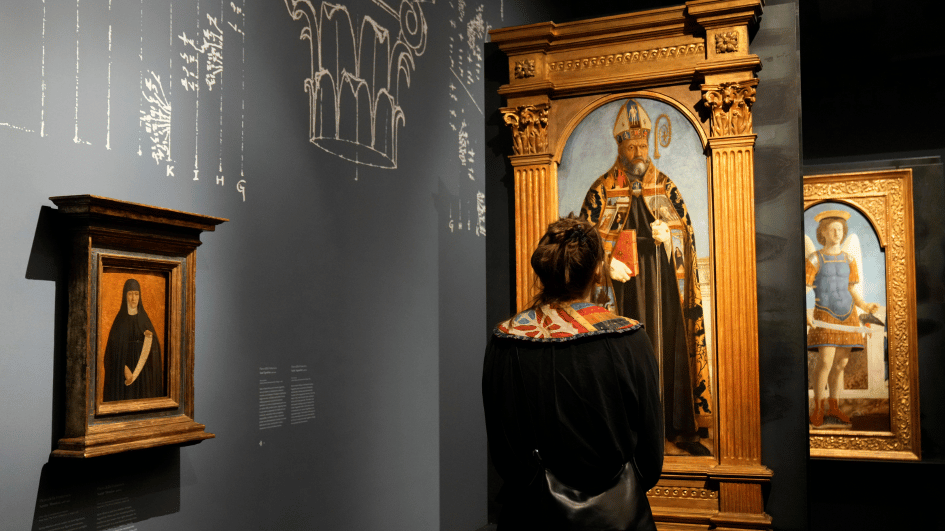
An unprecedented exhibition opening on March 20 at the Poldi Pezzoli Museum in Milan reunites for the first time in over 450 years eight surviving panels of the Augustinian Altarpiece by the early Italian Renaissance master Piero della Francesca, while possibly solving one of its enduring mysteries.
Museums have tried and failed in the past to assemble the remaining eight panels, spread among five museums in Europe and the United States, of the original 30-piece polyptych. They include the Poldi Pezzoli, owner of one panel, in 1996 and the Hermitage in St. Petersburg, Russia in 2018.
The Frick Collection in New York, owner of four panels, came closest a decade ago, gathering six.
Poldi Pezzoli Museum director Alessandra Quarto succeeded this time, after learning The Frick Collection would be closed for six months. With the works headed to storage, the New York museum agreed to the loan, making it easier to bring on board museums in London, Washington, D.C. and Lisbon.
In the exhibition, four large panels of saints are staggered against a blue background, flanking a blank wall where the missing central panel would have been. The piece has been missing for centuries and no sketches or records of its subject exist.
“What jumps out is the art and the exuberant monumentality of Piero della Francesca, because the whole is much more than the sum of its parts,’’ said co-curator Machtelt Bruggen Israels of the University of Amsterdam. “The research we have done have allowed us to reveal the biggest mystery that remained around this work.’’
New evidence gathered during scientific study leading up to the exhibition indicates that the missing central panel depicted the coronation of the Virgin, not as long believed the Virgin and Child enthroned, Israels said.
Infrared and stereomicroscopic studies revealed traces of two wings, one pink, one blue, on panels that would have flanked the central piece, indicating angels. The wings, Israels said, would have been scraped off when the altarpiece was disassembled, the wing fragments no longer making sense.